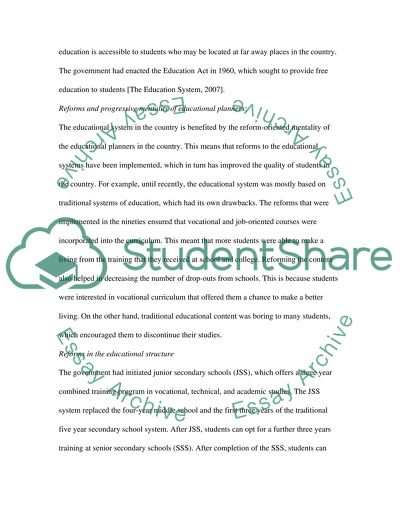Cite this document
(“The Strengths and Weaknesses of the Educational System in Ghana Essay”, n.d.)
Retrieved de https://studentshare.org/education/1541103-the-strengths-and-weaknesses-of-the-educational-system-in-ghana
Retrieved de https://studentshare.org/education/1541103-the-strengths-and-weaknesses-of-the-educational-system-in-ghana
(The Strengths and Weaknesses of the Educational System in Ghana Essay)
https://studentshare.org/education/1541103-the-strengths-and-weaknesses-of-the-educational-system-in-ghana.
https://studentshare.org/education/1541103-the-strengths-and-weaknesses-of-the-educational-system-in-ghana.
“The Strengths and Weaknesses of the Educational System in Ghana Essay”, n.d. https://studentshare.org/education/1541103-the-strengths-and-weaknesses-of-the-educational-system-in-ghana.


